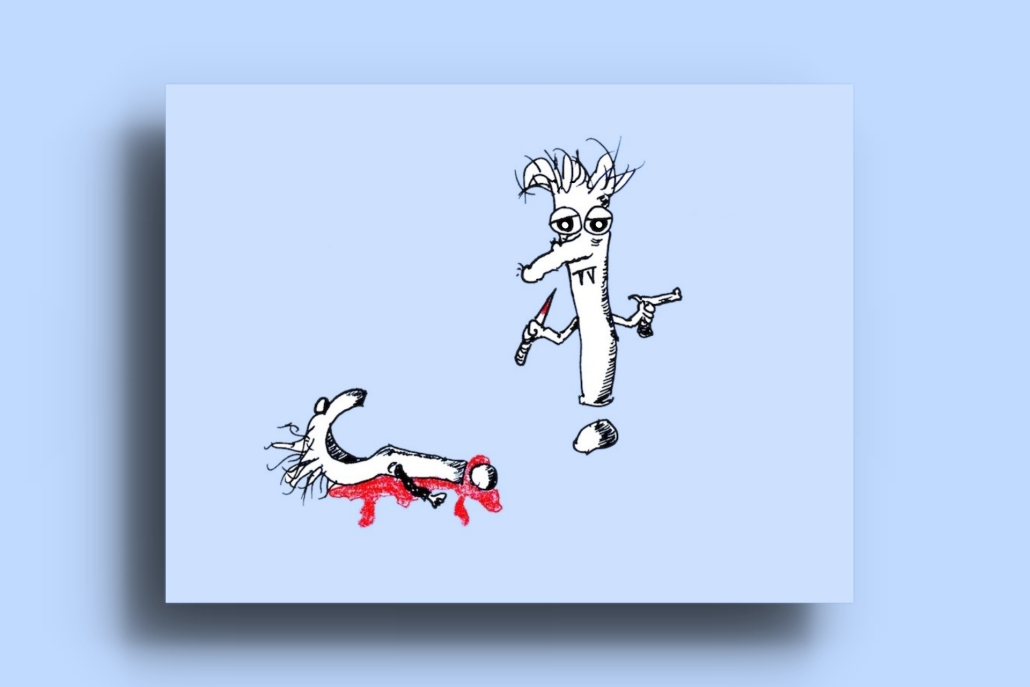Do dreams and nightmares influence the work of writers? Does writing influence the dreams experienced by authors? How does reading fiction prevent an overfitted brain?
There are several theories about why we dream, the different types of dreams we experience, and how our waking thoughts affect the dreams we experience.
Some experts believe that dreaming may help with processing our emotions. Therefore, it’s not uncommon to dream about momentous events that occur while we’re awake. So yes, a plot, scene, and/or characters (good or evil) developed during the daytime could certainly wriggle their way into a writer’s brain as they sleep.
There is a theory, the continuity hypothesis, stating that most dreams reflect the same notions that concern us while we’re awake. Analyzing those recurring dreams and images could help to identify our biggest worries and fears.
Some researchers theorize that dreams play a role in forming and storing memories, including long-term memory, by processing and sorting information received while we’re awake.
Overfitted Brain Hypothesis
It’s likely that our brains become so used to receiving ubiquitous data day-in and day-out that our minds become desensitized/overfit to the “same old-same old” routine of daily life. Animals under-sample their environment, which makes their brains susceptible to overfitting.
Problems caused by overfitting can be resolved by adding hallucinatory data to our thoughts as the brain goes about its business of learning.
However, the brain can’t truly fine-tune its learning while we’re awake because injecting the hallucinatory information needed to do so might cause or create unpleasant consequences. Therefore, the brain adjusts by having us dream when we’re asleep. Dreams and nightmares are the brain’s method of inserting hallucinatory information as a means of preventing overfitting.
The overfitted brain hypothesis suggests that dreams purposely insert random information into our brains to prevent the desensitization caused by the humdrum routines of our everyday lives. Professor Erik Hoel of Tufts University believes that “dreams happen to make our understanding of the world less simplistic and more well-rounded.”
Professor Hoel’s Overfitted Brain Hypothesis delves deeper into the mere function of dreams, though, such as exploring the notion that works of fiction are artificial dreams. Therefore, time spent reading and/or writing books or watching television is not simply a break from learning, but rather a necessary adjustment of our minds.
“It is the very strangeness of dreams in their divergence from waking experience that gives them their biological function.” – Professor Erik Hoel
Dreams and even nightmares are often great fodder for a story or scene. Sometimes, those nocturnal fantasies are absolutely bizarre and stressful, while other times they’re fun and exciting, or warm and comforting. Occasionally, our dreams involve wonky characters who zip around inside our minds as they go about doing whatever is necessary to move their stories forward. They’re often the perfect protagonist or antagonist for a book.
Likewise, some “characters” found in novels are equally suitable as cast members for appearances during our nocturnal bouts of shut-eye.
A questionable murder (top image), to say the least, is a perfect example of the characters who, for some reason, show up in my mind from time to time. However, these guys often come to me while my eyes are open and I’m wide-freakin-awake. Yep, my brain is a weird one. So are the other characters found inside my ever-working twisted mind. Such as …
The Renowned 100-Yard Em Dash

The em dash is perhaps the most versatile of all punctuation marks.
Whatcha’ Gonna Do ‘Bout the Puppies?
Colon owners consider semi-colons as mixed breeds, therefore they prefer to keep the two apart. This is to prevent an unfortunate encounter that could result in large litters of periods and commas.
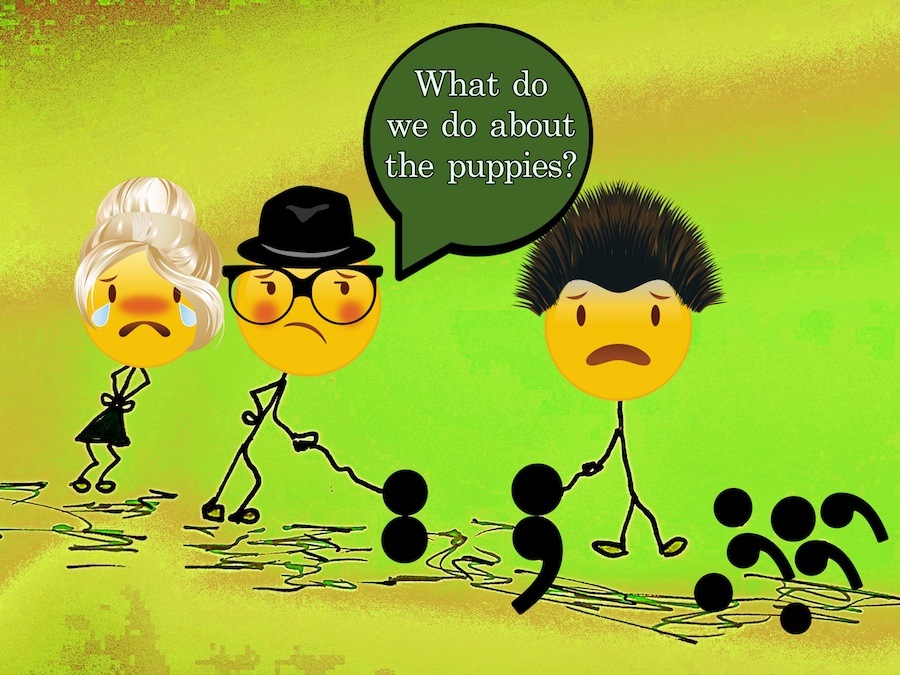
Unfortunate encounters could produce large litters of periods and commas
Do You Have Your Ellipsis Glasses?
Punctuation marks have been known (in my mind) to join together to antagonize the sun.
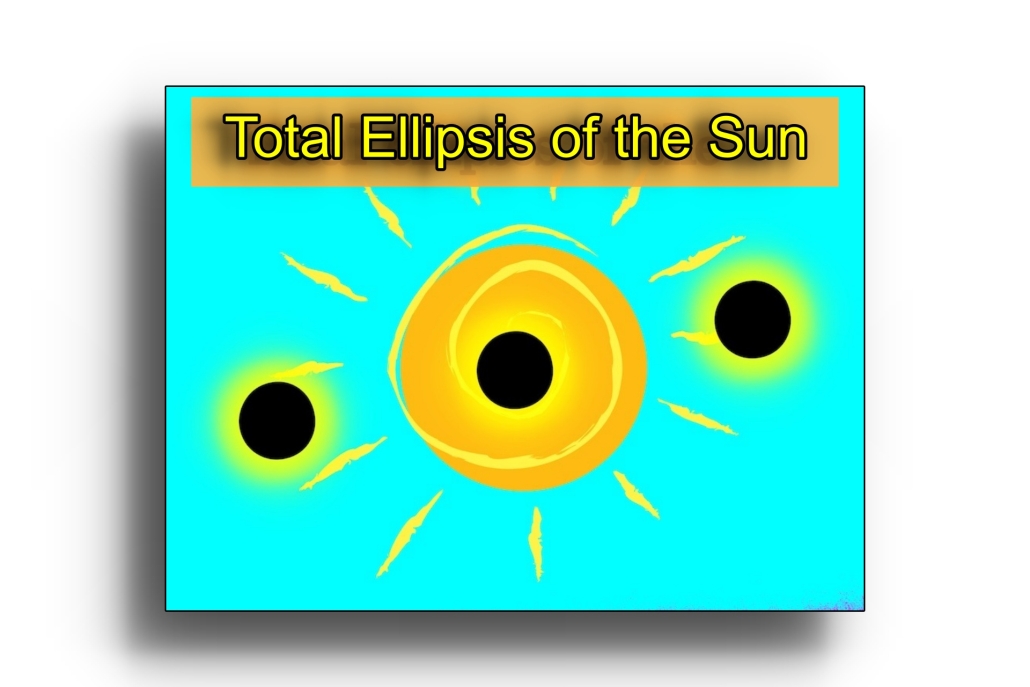
Periods, in a grouping of three, join together to …
Braces for Junior

Braces are also known as curly brackets “{ }”.
Quotation Marks Have Places to Go!
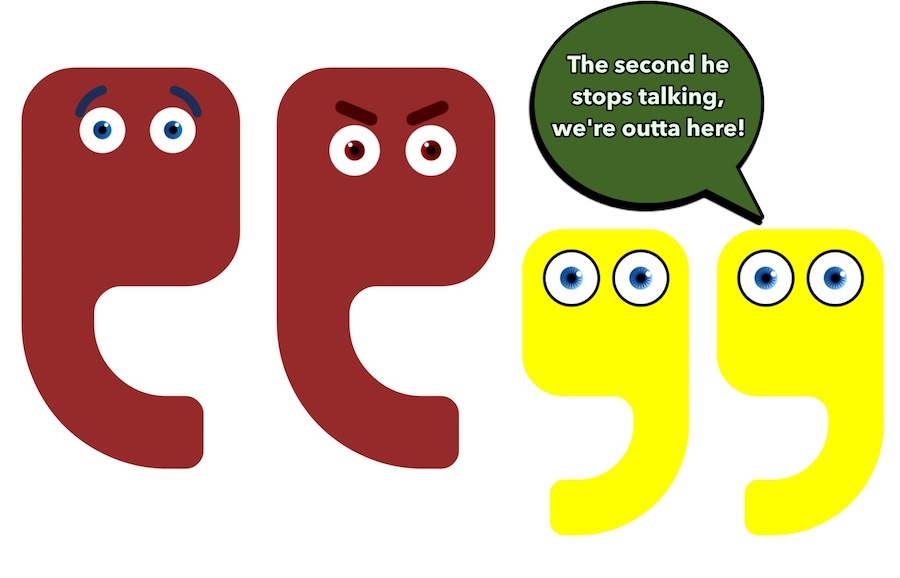
Commas and periods always go inside the quotation marks in American English; dashes, colons, and semicolons almost always go outside the quotation marks; question marks and exclamation marks sometimes go inside, sometimes stay outside. ~ Grammerly
Stop Shouting
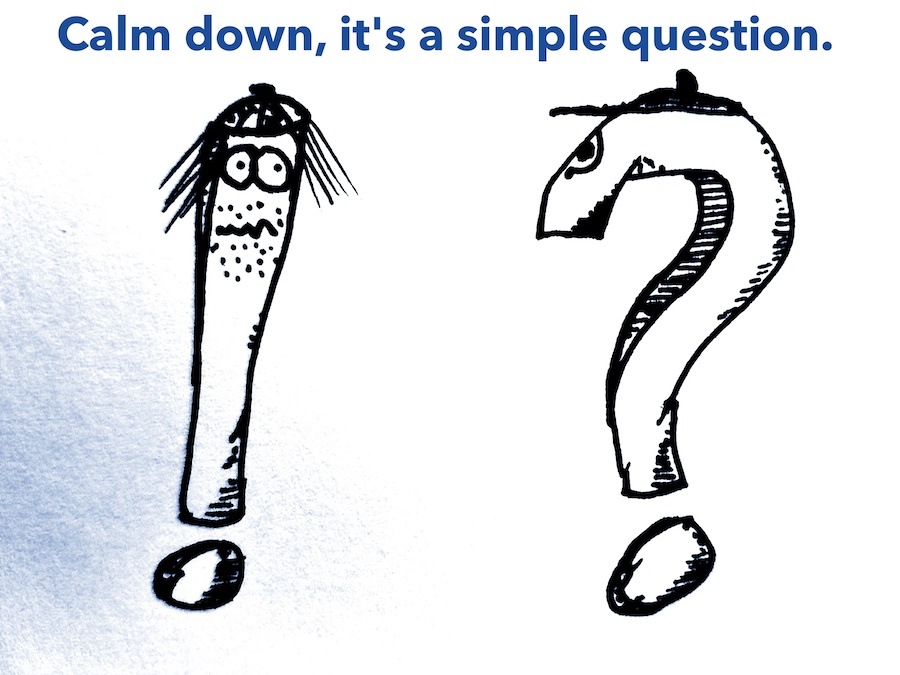
It’s always best to listen to questions first, before responding
WHY???
